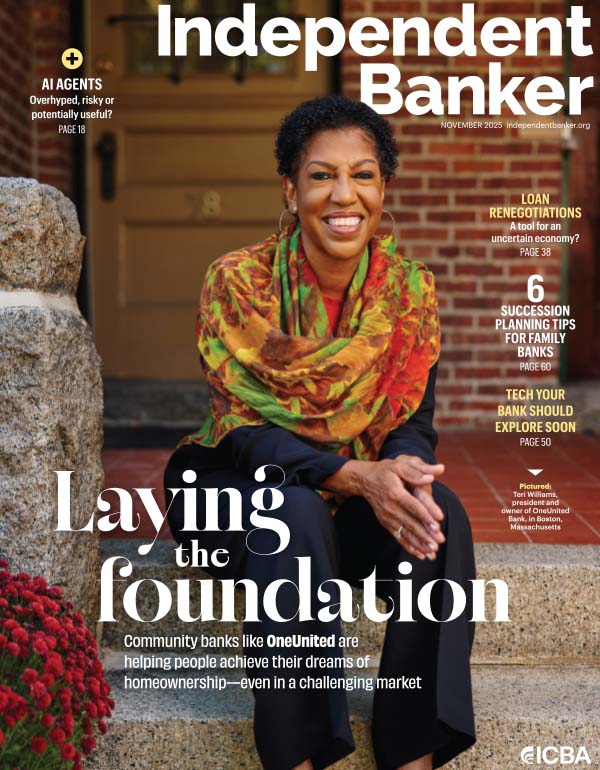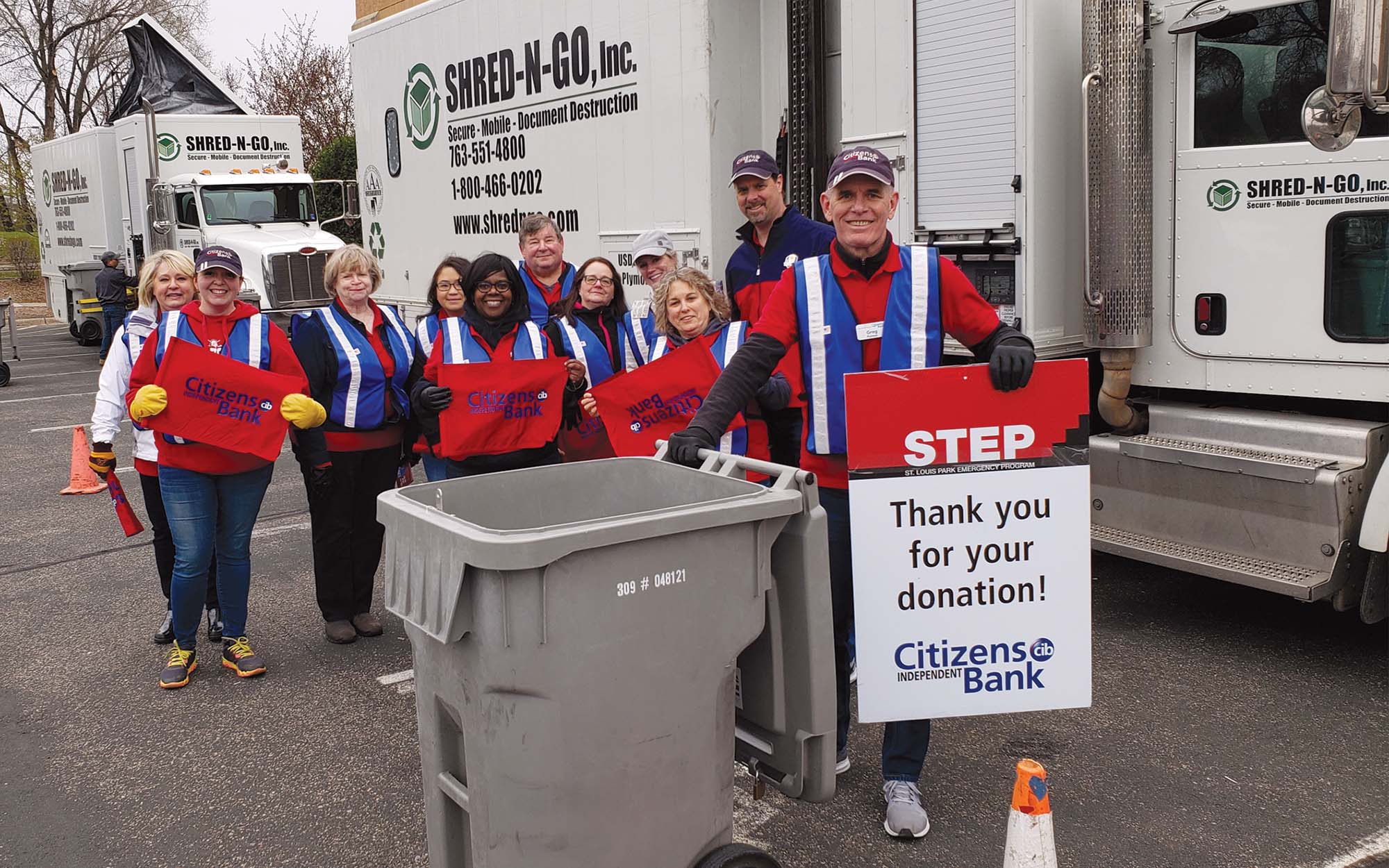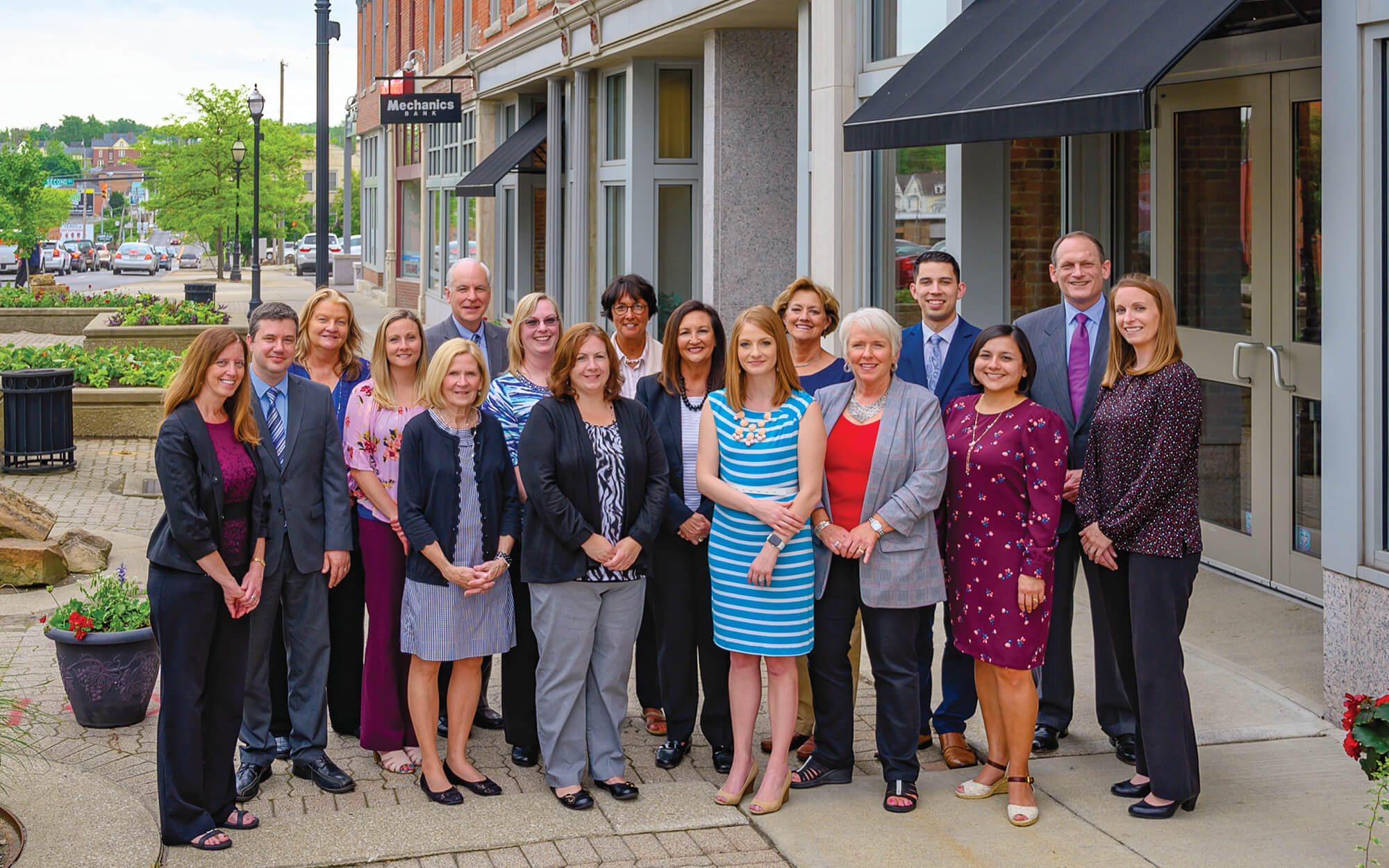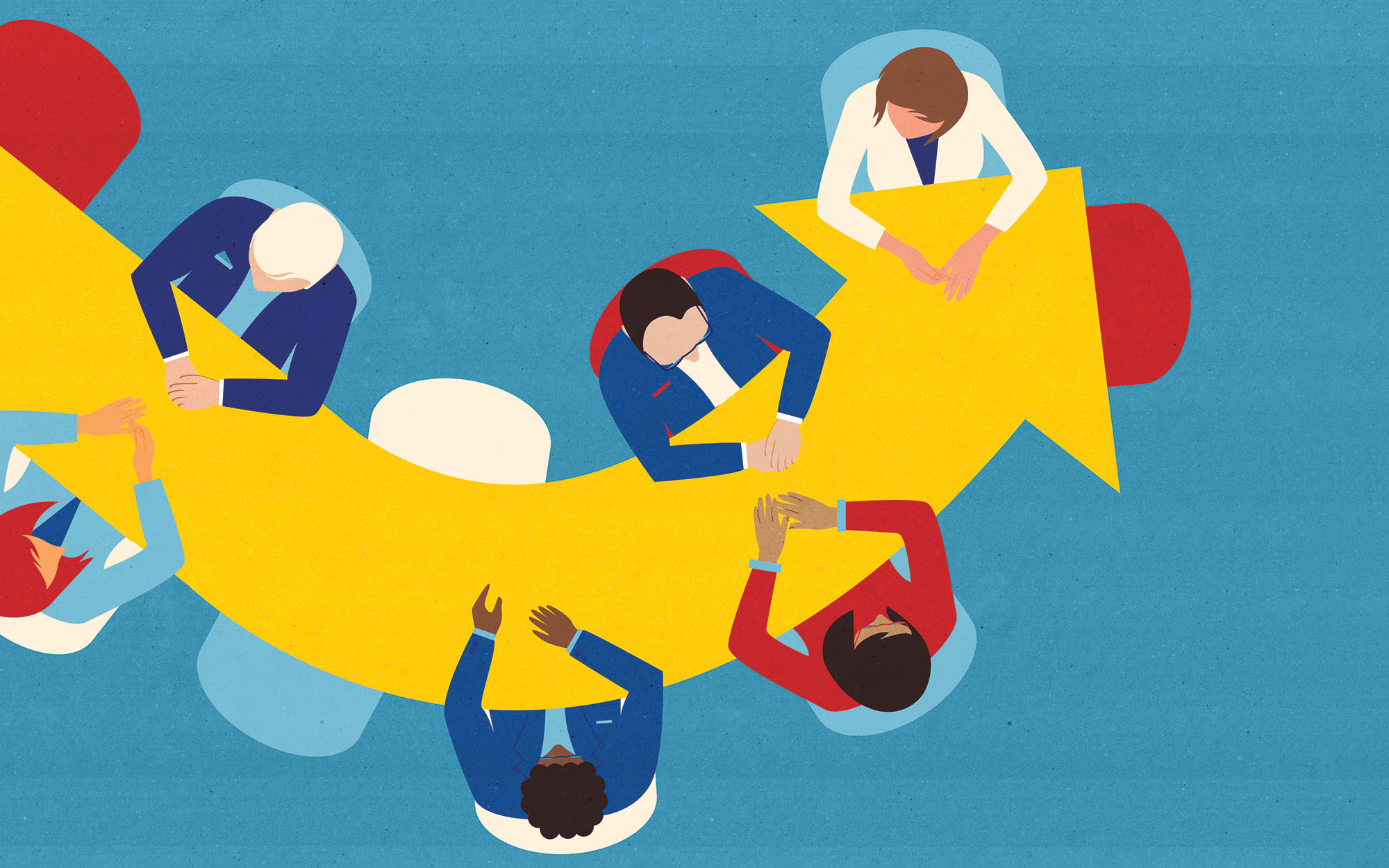With tens of millions of Americans hit by identity theft, people want to make sure they dispose of their private documents properly. To help them, many community banks offer shredding services for sensitive documents.
Community State Bank in Union Grove, Wis., has been hosting such events, dubbed community shred days, periodically for the past decade, usually once in the fall and once in the spring. “We host the program because it provides the opportunity for our customers to dispose of personal and confidential information safely,” says Ellie Heigl, marketing communications coordinator at the $400 million-asset bank. “Protecting our customers from identity theft is always a priority as a community bank.”
It all ties in with Community State Bank’s dedication to financial literacy, which the bank believes has two aspects. “The first is learning to spend wisely and budget,” Heigl says. “The second is protecting your financial well-being and learning not to put yourself in a situation to become a victim of identity theft.”
The community bank works with a shredding provider based in nearby New Berlin, Wis., which brings a truck to the bank that shreds the materials as they’re fed into the back of the vehicle. The company then securely recycles the confetti at its plant.
The events have gotten so popular that nearly 150 people filled up an entire semitruck at a shredding day earlier this year. Heigl says Community State Bank is looking to add more dates and spread the service to other branches.
Shredding in any weather
It’s been 11 years since $270 million-asset Citizens Independent Bank in St. Louis Park, Minn., held its inaugural community shred day. The original intent behind the event was to educate the community on the importance of securely disposing of confidential paperwork. The next year, the bank decided to support a local food shelf and suggested that people using the free shredding service make a donation to the food shelf, according to Tammy Andrews, Citizens Independent Bank’s marketing and public relations director.
The community bank offers the service once a year during Community Banking Month in April, when Andrews says Minnesota weather is “unpredictable.” “We have had many years of perfect spring weather, but we have also shredded in rain, sleet and snow,” she adds.
The amount of paper shredded has decreased over the years, Andrews says. The first few years, locals brought in more than 15,000 pounds of documents to shred during the three-hour event, but that number has dropped to about 7,000 pounds in two hours. “I’m sure the reduction can be attributed to the advent of electronic statements,” she adds.
Still, the event is popular. People traditionally begin lining up an hour before the trucks are scheduled to arrive. This year, during the first 30 minutes, 76 customers watched their paperwork shredded. “It takes 12 employees, two truck operators and six car lanes to keep the process running smoothly,” Andrews says.
Citizens Independent Bank is considering a customer electronics recycling event this fall.
Financial spring cleaning
Grand Savings Bank, a $475 million-asset community bank in Bentonville, Ark., began its annual Earth Day shredding event several years ago to celebrate the sustainability-focused holiday and to give its communities an opportunity to go through their homes and businesses, do some spring cleaning and bring documents to the bank to be destroyed. “We felt that, by offering this service to our communities, we were doing our part to battle against fraudsters,” says Natalie Bartholomew, the bank’s chief administrative officer and vice president.
Each Earth Day, the bank stations a truck at two branches for two hours each. “It is open to the public, and [bank] team members, as well as the shredding company employees, are on site to assist with unloading the documents and putting them into the truck,” she says.
Grand Savings Bank’s events are busy. This past year, both locations had lines down the street, with about 30 to 40 people using the service at each location. “The majority of those are people from small businesses and municipalities,” Bartholomew says.
What should customers shred?
What do community banks encourage people to bring to their shredding days? Here’s a checklist:
Bank information
Bank statements
Canceled or voided checks
Receipts with checking account numbers
ATM receipts
Credit card information
Credit and charge card bills, summaries and receipts
Preapproved credit card applications
Investment, financial and legal information
Investment documents
Investment, stock and property transactions
Legal documents
Tax forms
Travel information
Travel itineraries
Used airline tickets
Expired passports and visas
Documents with names, addresses, phone numbers and/or email addresses
Documents with passwords or PINs
Driver’s license documents
Old ID cards (college, state, employee badges, military, etc.)
Documents with Social Security numbers
Medical and dental records
Résumés
Utility bills






